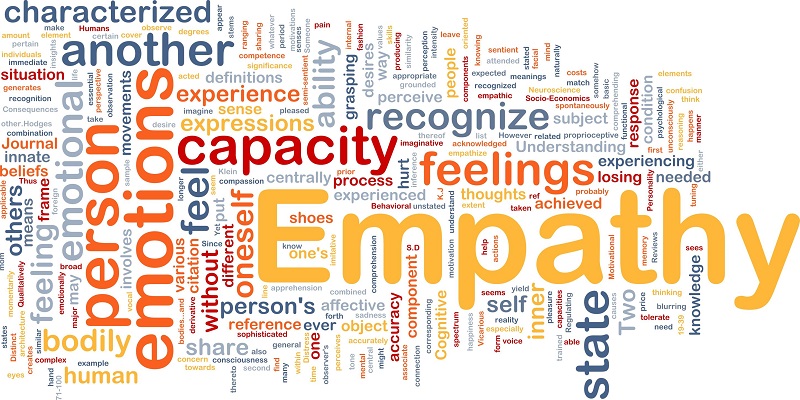Great Leadership: See Things Through Someone Else’s Eyes

 While both the first and the second part of this article series dealt with managing your own emotions, in this final part we will turn our attention to the emotions of the people around you.
While both the first and the second part of this article series dealt with managing your own emotions, in this final part we will turn our attention to the emotions of the people around you.
The skill we are about to discuss is called empathy. Empathy is the ability to imagine yourself in the situation of someone else and appreciate how they might feel in this situation. It is arguably the most essential requirement for successful and great leadership.
The significance of seeing things through someone else’s eyes
As a leader, you’re used to telling people what to do – and so you should: That’s what being in charge is all about. However, unless you’re an army leader, your communication with your direct reports shouldn’t be a one-way street, especially if you work in a professional environment where flexibility, adaptability, innovation, and creativity are key assets for success. You need your team to talk to you – and they need to feel that it’s safe to talk to you, even about problems and failures. Empathizing with their challenges and issues will help you in three key areas:
Acceptance of your leadership role:
You won’t be able to lead a team efficiently if the team members secretly doubt your ability to fulfil that role. Having a deep understanding of their daily tasks and the challenges that come with them will go a long way in gaining your genuine recognition as a leader.
Real connections:
Empathy is also a necessary prerequisite for establishing and fostering real connections with others. And you can only lead others successfully if you can connect with them.
Innovation and productivity:
Your team is productive and efficient if everyone contributes ideas about various aspects of your work: how to make processes run more smoothly, how to avoid certain risks and failures, which tools to use to get the job done most efficiently. They will only come up with those ideas, though, if they experience that their opinions and insights matter and are being listened to.
This is what you need to do
If you want to improve your empathy skills, it’s a good idea to start by making use of what you’re already good at: In the first part of this series, you learned how to detect and analyze your own emotions. Now use the same methods, e.g. paying more attention to body signals, to recognize the emotions of the people around you.
Try this while focusing on the following three aspects:
- Identify the most important settings:
Empathy is a skill that needs to be practised deliberately, and that can be exhausting. You should, therefore, choose a few concrete settings in which you’d like to work on your empathy skills. Ideally, these are settings where it’s most helpful to be empathetic. For instance, if you have a regular meeting with your direct reports, you could focus on making sure everyone has their say.
- Learn how to be a good listener:
Oral communication is about someone talking and someone else listening. As a leader, you’re used to being the talker. This can be a problem because, if you don’t listen as well as you talk, you will most likely miss out on a lot of great ideas, helpful advice, and crucial risk warnings your team is trying to tell you about.
- Check your own progress:
Continuously reflect on your efforts to be more empathetic. Where have you become better? Which are your greatest challenges? Also, observe the behavior of your direct reports towards you: Is it changing, and if yes, in what way? And what does this tell you about your attitude towards them?
This is how you can get the process started – and it’s a process that will, ideally, never end: You will keep becoming better as a people manager and therefore be able to lead teams more and more successfully. Yes, it will be an uphill struggle at times, but it’s a struggle worth fighting: The reward is being in charge of a group of people who are glad it’s you who is leading them.
For further reading download the eBook:

[bookboon-recommendations id=”bd90e900-2012-4027-bf4b-6ecdad779acf” title=”You might also find these books interesting:”]


